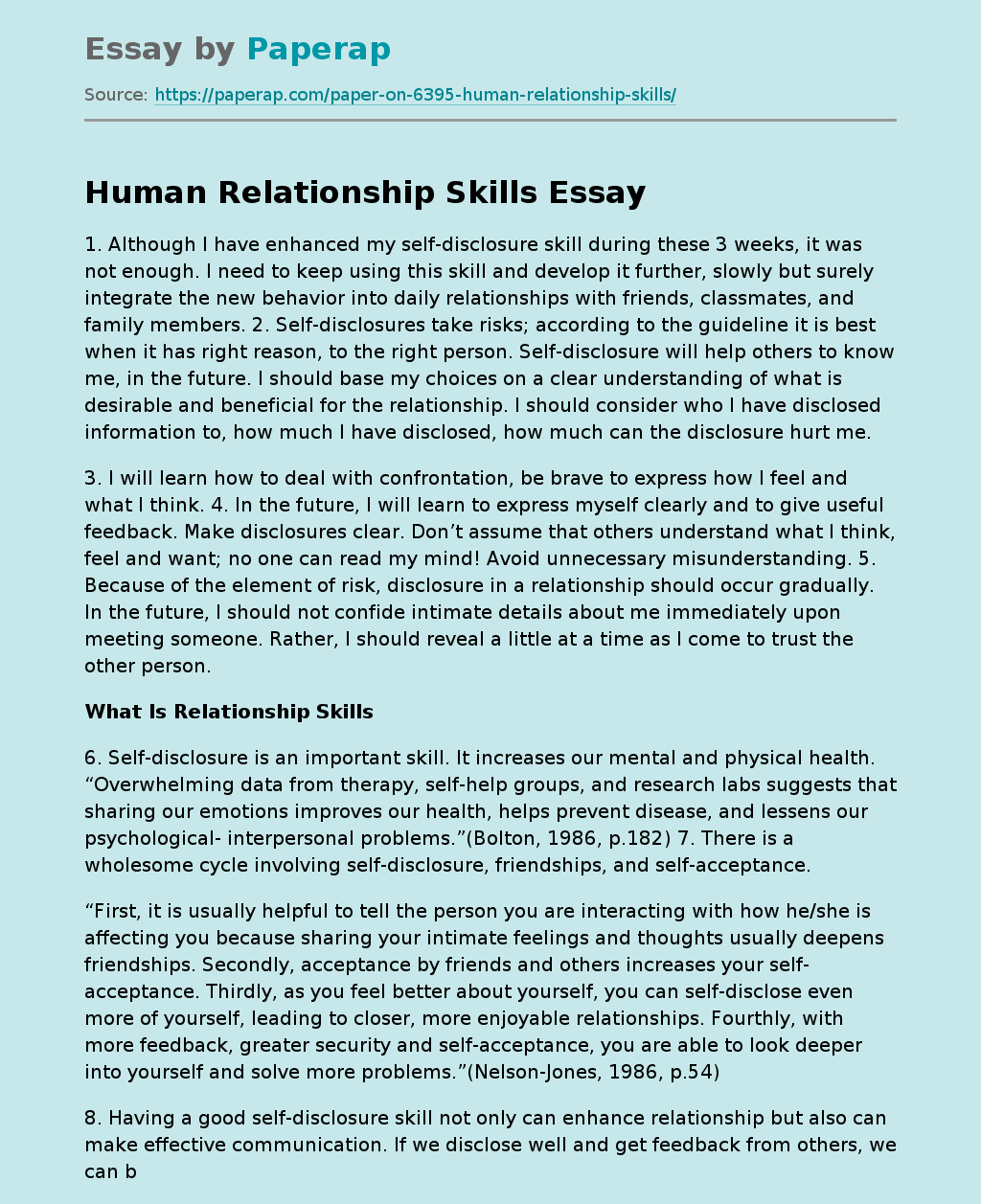Human Relationship Skills
1. Although I have enhanced my self-disclosure skill during these 3 weeks, it was not enough. I need to keep using this skill and develop it further, slowly but surely integrate the new behavior into daily relationships with friends, classmates, and family members. 2. Self-disclosures take risks; according to the guideline it is best when it has right reason, to the right person. Self-disclosure will help others to know me, in the future. I should base my choices on a clear understanding of what is desirable and beneficial for the relationship.
I should consider who I have disclosed information to, how much I have disclosed, how much can the disclosure hurt me.
3. I will learn how to deal with confrontation, be brave to express how I feel and what I think. 4. In the future, I will learn to express myself clearly and to give useful feedback. Make disclosures clear. Don’t assume that others understand what I think, feel and want; no one can read my mind! Avoid unnecessary misunderstanding.
5. Because of the element of risk, disclosure in a relationship should occur gradually. In the future, I should not confide intimate details about me immediately upon meeting someone. Rather, I should reveal a little at a time as I come to trust the other person.
What Is Relationship Skills
6. Self-disclosure is an important skill. It increases our mental and physical health. “Overwhelming data from therapy, self-help groups, and research labs suggests that sharing our emotions improves our health, helps prevent disease, and lessens our psychological- interpersonal problems.
”(Bolton, 1986, p.182) 7. There is a wholesome cycle involving self-disclosure, friendships, and self-acceptance.
“First, it is usually helpful to tell the person you are interacting with how he/she is affecting you because sharing your intimate feelings and thoughts usually deepens friendships. Secondly, acceptance by friends and others increases your self-acceptance. Thirdly, as you feel better about yourself, you can self-disclose even more of yourself, leading to closer, more enjoyable relationships. Fourthly, with more feedback, greater security and self-acceptance, you are able to look deeper into yourself and solve more problems.”(Nelson-Jones, 1986, p.54)
8. Having a good self-disclosure skill not only can enhance relationship but also can make effective communication. If we disclose well and get feedback from others, we can be more self-aware and develop a positive self-esteem. Our empathic listening skill might also be enhanced. Sharing brings personal growth, a growth in our knowledge of ourselves and of other, a growth in the bonding of our relationship, and the growth in our sense of our own value.
Reference
Adler, R. B. & Towne, N. (2003).Looking out, looking in. (10th ed.). Wadsworth/Thomson Learning: Belmont. Bolton, R. (1986). People skills. Australia: Prentice Hall of Australia Pty Limited. Burton, G., & Dimbleby. R. (1996).Between ourselves: An introduction to interpersonal communication. (2nd ed.).New York: J W Arrowsmith Ltd. Nelson-Jones. (1986).Human relationship skills: Training and self-help. Great Britain: Biddles Ltd.
Human Relationship Skills. (2019, Dec 05). Retrieved from https://paperap.com/paper-on-6395-human-relationship-skills/

